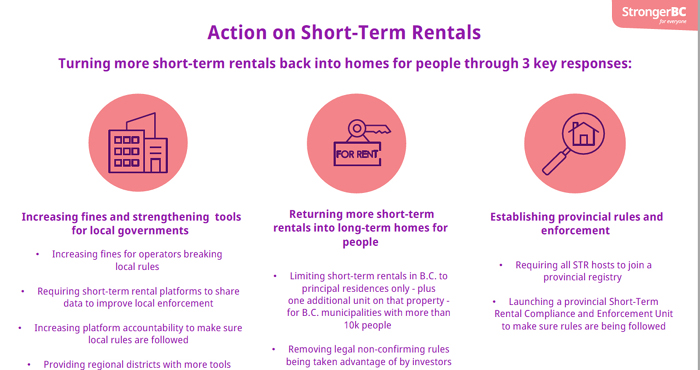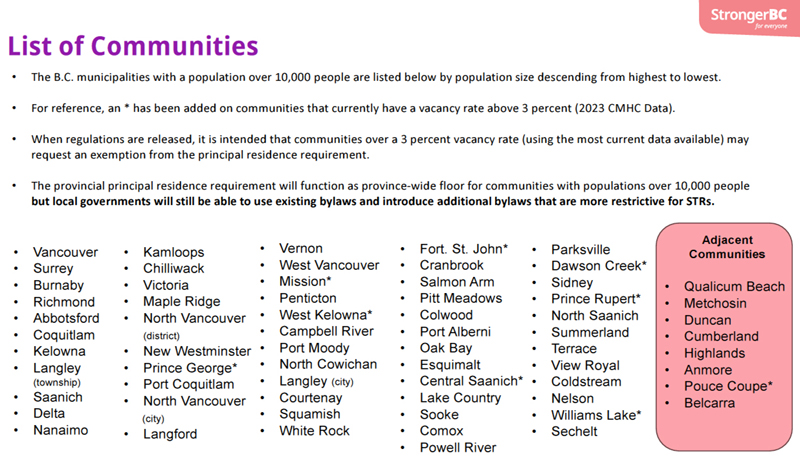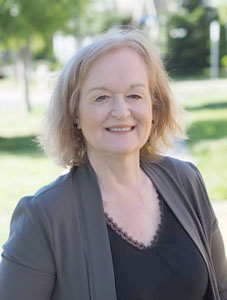
Monday October 16, 2023 | VICTORIA, BC [Updated 10:25 pm]
by Mary P Brooke | Island Social Trends
While it has been a problem cooking for a while in larger communities across BC, the issue of short-term rental (STR) regulation has finally reached the doorstep of becoming a reality.
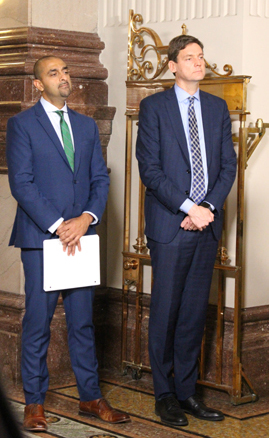
Premier David Eby, Housing Minister Ravi Kahlon, and Victoria Mayor Marianne Alto, delivered an announcement this morning (in the rotunda at the BC Legislature) about the proposed legislation that will return short-term rentals to long-term homes for people and give local governments more tools and resources to ensure that rules are being followed.
Legislation was introduced today by Housing Minister Ravi Kahlon that will see over 16,000 short-term rental units be restored to the general housing marketplace.
The government’s hope is that at least half that number will be freed up as long term rentals.
Minister Kahlon told Island Social Trends that restoration of living accommodations could be as long-term rentals for families and members of the community or as homes for sale back on the open market. Either way, it’s seen as a win-win for BC residents.
Mayor Alto told media that the new STR regulations would be an important boost to the supply of places for people to rent as long-term homes.
It’s unclear whether the $3,000-per-day penalty for non compliance will be enough to deter misuse or skirting around the legislation but Kahlon does think so. He said the previous $1,000-per-day fine was being treated as simply a cost of doing business.
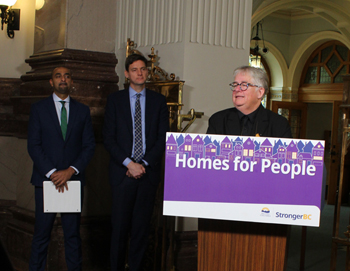
BC Green house leader Adam Olsen said it was the BC Greens who launched concern about the STR problem as far back as 2018.
Legislation:
The legislation around short-term rentals focuses on three key areas:
- increasing fines and strengthening tools for local governments;
- returning more short-term rentals to long-term homes; and
- establishing provincial rules and enforcement.
Changes to how short-term rentals operate:
Changes to how short-term rentals operate will come into effect through a phased-in approach and will include:
Increasing fines and better tools for local governments:
- increasing fines for operators breaking local rules to support local municipal bylaws, and requiring short-term rental platforms to share data to strengthen local enforcement;
- requiring online short-term rental platforms to share their data with the Province, so the Province can provide that information to local governments for enforcement and support of provincial and federal tax auditing;
- requiring short-term rental platforms to include businesses licence numbers on listings where they are used by a local government, and to remove listings without them quickly to ensure local rules are being followed; and
- giving regional districts the ability to issue business licences so they can more effectively regulate short-term rentals in rural areas.
Returning long-term rentals to the market:
- Returning more short-term rentals into long-term homes for people:
requiring short-term rentals in B.C. to be offered only in the principal residence* of a host in municipalities with a population of 10,000 people or more
(*principal residence plus one secondary suite or laneway home/garden suite on the property is allowed); - forthcoming regulations will specify areas exempt from the principal residence requirement, including 14 resort regions, mountain resort areas, municipalities under 10,000 population (except those within 15 kilometres to larger municipalities), and regional district electoral areas; and
- removing legal non-conforming use protections for short-term rentals being taken advantage of by investors to support local governments’ efforts to set rules about where these units can operate in communities.
Establishing provincial rules and enforcement:
- establishing a provincial host and platform registry by late 2024 for stronger accountability; and
- launching a provincial short-term rental compliance and enforcement unit to make sure rules are being followed.
Airbnb fights back:
In a statement issued by Airbnb, the short-term rental company’s policy manager Alex Howell took an approach on the side of the tourism sector: “The BC government’s proposed legislation won’t alleviate the province’s housing concerns. Instead it will take money out of the pockets of British Columbians, making travel more unaffordable for residents who travel within BC and reduce tourism spending in communities where hosts are often the only providers of local accommodations.”

Howell said that the Conference Board of Canada declares short term rental rules as not being an effective solution to local housing concerns, and that the BC government should “pursue more sensible regulation”. The report apparently concludes that “the estimated effect of Airbnb activity on rent in most specifications is not statistically different from zero”.
That seems to be a statement neglecting the reality that entire homes (in particular) being rented out for tourists or short-term visitors is using up homes that might otherwise be in the open rental market. When vacancy levels are at near record lows, the price of rent does go up (the simple basics of supply and demand).
Airbnb says that “if every short-term rental was put back on the market, it wouldn’t scratch the surface of the number of houses needed”. That is in direct contrast to the housing minister’s statement that “if even half” the 16,000 homes were freed up for long-term rental (or sale) it would be an immediate injection of new rental spaces in the market, starting at May 1, 2024 when the legislation will come into effect, or even before as the market adjusts.
Airbnb stats in BC:
According to Airbnb today, more than one million British Columbians travelled within BC as guests on Airbnb in 2022, helping to keep tourism spending local. More than one million British Columbians travelled within BC as guests on Airbnb in 2022, helping to keep tourism spending local.
According to Airbnb’s own survey data:
- Airbnb guests in BC spend approximately $225 per day, per guest, in addition to their listing.
- Approximately 43% of BC guests say they would not have visited the neighborhood of their listing if not for Airbnb.
- Airbnb collected and remitted over $67 million in taxes in BC, an increase of approximately 70 percent from 2021.
===== GOVERNMENT LINKS:
- Short-term rental accommodations act technical briefing presentation:
https://news.gov.bc.ca/files/ShortTermRental_Technical_Briefing.pdf - New short-term rental rules in B.C.: https://gov.bc.ca/ShortTermRentals
- Homes for People action plan: https://news.gov.bc.ca/files/Homes_For_People.pdf
- Steps the Province is taking to tackle the housing crisis and deliver affordable homes for British Columbians: https://workingforyou.gov.bc.ca/
- Public enquiries: https://www2.gov.bc.ca/gov/content/home/get-help-with-government-services or visit: https://www.gov.bc.ca/shorttermrentals
- For more information about B.C. legislation, visit: https://workingforyou.gov.bc.ca/legislation
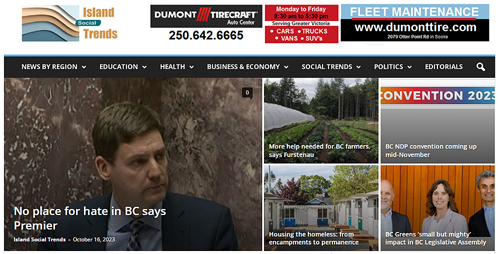
===== ABOUT ISLAND SOCIAL TRENDS:
We report on trends in society, economy and politics for an audience of attentive readers who are interested in progressive directions in society and economy. Island Social Trends has been doing that since 2020 at IslandSocialTrends.ca, in the footsteps of a series of print publications: MapleLine Magazine (2008-2010), Sooke Voice News (2011-2013), and West Shore Voice News (2014-2020).
Founding editor and publisher of all these publications is Mary P Brooke.
In 2023 Ms Brooke was nominated for a Jack Webster Foundation award that recognizes a woman’s community service through journalism.
Mary Brooke now reports with the BC Legislative Press Gallery.




